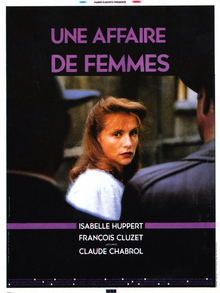 |
| Isabelle Huppert and Gabriel Byrne in Louder Than Bombs |
Cast: Gabriel Byrne, Isabelle Huppert, Jesse Eisenberg, Devin Druid, Amy Ryan, David Strathairn, Ruby Jenkins, Megan Ketch, Rachel Brosnahan. Screenplay: Joachim Trier, Eskil Vogt. Cinematography: Jakob Ihre. Production design: Molly Hughes. Film editing: Olivier Bugge Coutté. Music: Ola Fløttum.
Joachim Trier's Louder Than Bombs is a portrait of a dysfunctional family, but Trier lays on the dysfunction a little too thickly and the film descends into soap opera territory. Isabelle Reed (Isabelle Huppert), a celebrated photojournalist, has died in an automobile crash, and her family is contacted by a gallery for a memorial exhibition of her photography. A reporter (David Strathairn) who had worked with her is also preparing an article for the New York Times celebrating her life and work. Gene (Gabriel Byrne), her husband, asks their older son, Jonah (Jesse Eisenberg), who has just become a father, to come help him sort through the materials remaining in Isabelle's workshop. The younger son, Conrad (Devin Druid), is still in his teens, and Gene has refrained from telling him that his mother's death was probably not an accident but instead a self-destructive consequence of depression. Trier tells their story in fragments and flashbacks, and relies on some rather heavy-handed ironies. Isabelle, for example, had been concerned that her photographs of the victims of war were exploitative and voyeuristic, but Gene becomes a voyeur himself, spying on the sullen, secretive, and taciturn Conrad. He is also having an affair with one of Conrad's teachers (Amy Ryan) to further his spying on his son. In a gratuitous episode that adds nothing to the plot or the theme of the film, Jonah, although initially portrayed as a loving husband and father, has an affair with an old girlfriend (Rachel Brosnahan) he meets in the hospital where his wife has just given birth. The acting is uniformly good, with Druid particularly effective at portraying the torments of adolescence. But the secrets and lies in the film tend to sink it into melodrama.




















